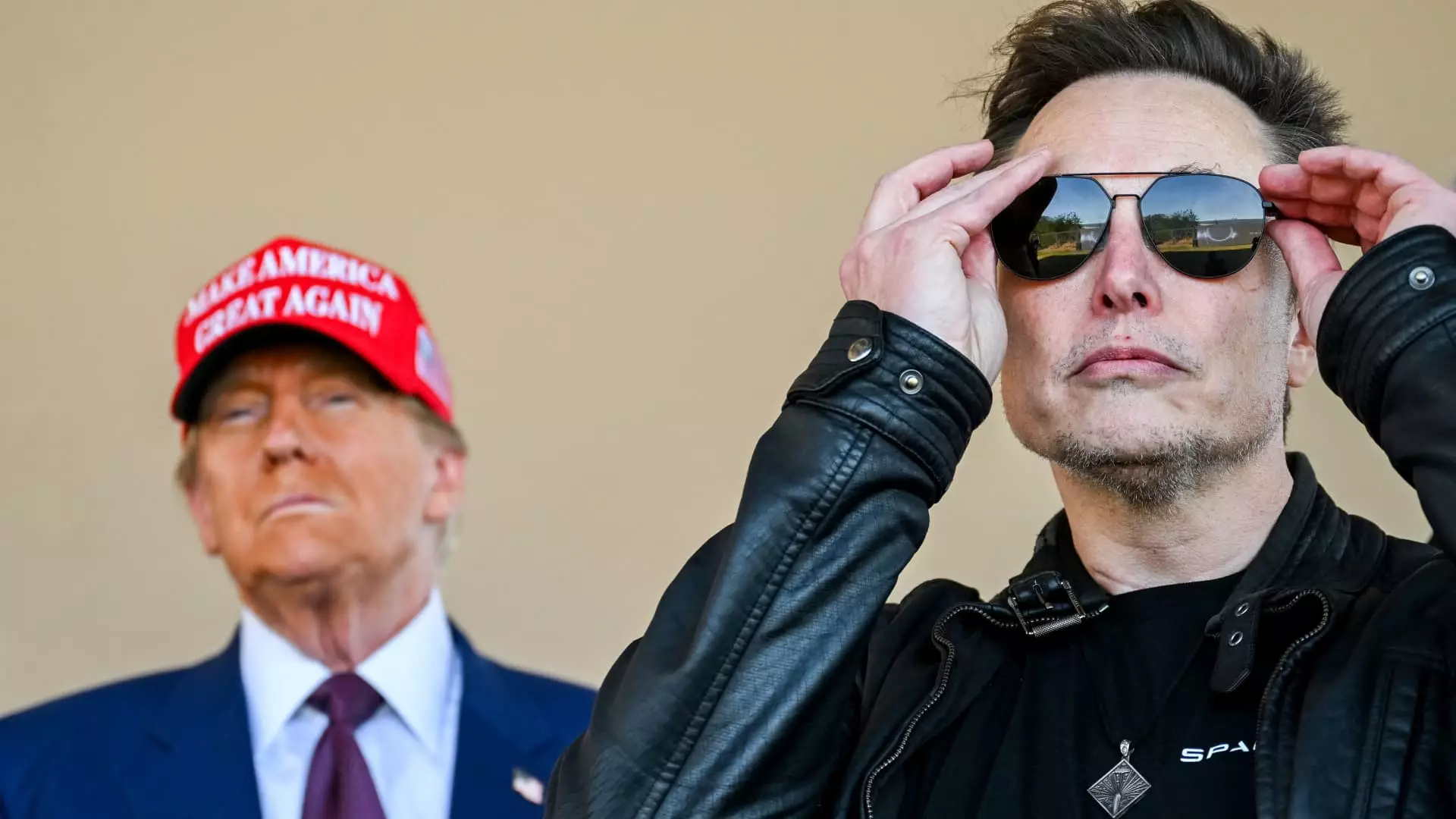The emergence of tech titans like Elon Musk as influential figures in political discourse raises significant concerns about the dynamics of power in American governance. Following yet another averted government shutdown, attention has shifted to the apparent sway Musk holds over President-elect Donald Trump and Republican lawmakers. The disturbing implications of this relationship could redefine the landscape of political influence, making it crucial to examine both the motivations at play and the potential consequences for governance.
The political drama unfolded as Congress wrestled with a 1,500-page bipartisan funding bill intended to keep the government running. However, this initiative faced a swift demise, largely attributed to Musk’s vocal opposition on social media. With a staggering following of over 208 million on X (formerly Twitter), Musk’s influence was palpable. His tweets led many to suspect that he may have been dictating GOP choices, warranting ironic labels like “President Musk” from discontented critics. Such assertions raise vital questions about the accountability of elected officials and the extent to which they allow a business magnate to shape their legislative actions.
Democratic lawmakers are particularly alarmed by Musk’s interventions, arguing they threaten the foundational principles of democratic governance. Their critiques underscore a growing unease about the extent to which private interests—especially those represented by billionaires—are allowed to infiltrate public policy.
In a political landscape already rife with partisanship, the intrusion of figures like Musk complicates matters. House Democrats, including Jim McGovern and Rosa DeLauro, assert that Republicans acquiesced to Musk’s calls primarily due to his stakes in maintaining favorable ties with China. Such a claim reflects broader apprehensions that corporate interests may overshadow public welfare in legislative proceedings.
On the other end of the spectrum, Republican Congressman French Hill denied that Musk’s influence was central to the discussion. Instead, he urged for coherence within their party due to their slim majority. This highlights an internal struggle within the GOP as they navigate a post-Trump era, revealing cracks in their unity.
Senator Elizabeth Warren’s condemnation of Musk’s political involvement serves as an echo of concerns many share. “Nobody voted for the richest man in the world to run the federal government,” she asserted, calling into question the legitimacy of a scenario where wealth translates into unfettered political influence. The sentiment reflects a broader societal discourse regarding fairness and who exactly holds the reins of power in a democratic system.
In contrast, Republican Senator Bill Hagerty offered a different narrative, lauding Musk for bringing transparency to complex legislation via social media. This faction within the GOP views Musk’s actions as a benefit, arguing that his platform sheds light on governmental operations that would otherwise remain obscure. Such opposing viewpoints not only illuminate the divided nature of the current political climate but also complicate the ongoing negotiations over essential issues.
As discussions heighten regarding Musk’s purported political influence, lawmakers like Congressman Tony Gonzales assert that Musk embodies the voice of the American populace. His position highlights a troubling trend where business figures assume roles traditionally reserved for elected officials. As Musk garners attention and support from certain demographics, the lines distinguishing corporate influence from political representation blur, potentially leading to a paradigm where business leaders wield more power than elected representatives themselves.
Democratic Senator Chris Coons encapsulated skepticism surrounding this trend, predicting that the chaotic nature witnessed during recent negotiations may persist as Trump steps into office. He warns that the dual force of President Trump and Musk could lead to increased unpredictability, complicating efforts to tackle critical national issues.
The increasing involvement of figures like Elon Musk in the fabric of American politics raises fundamental questions about accountability, influence, and the integrity of democratic processes. As Congress strives for stability amidst ongoing governmental negotiations, the potential for business magnates to exert control only heightens the urgency for a structural reevaluation of political engagement in the United States. Moving forward, it is essential for lawmakers to protect the sanctity of the democratic process and ensure that public interest remains at the forefront of governance, rather than the ambitions of those who wield substantial wealth and influence.


Leave a Reply